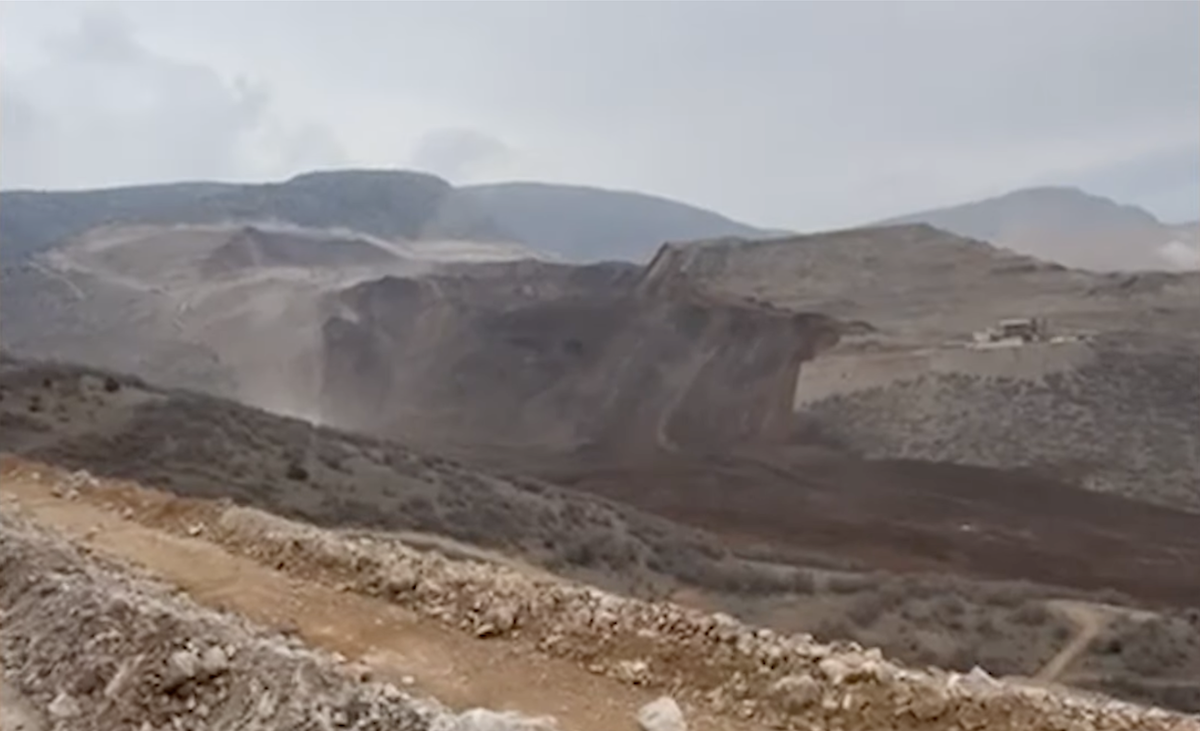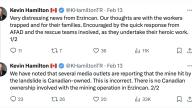On February 13, 2024, at SSR Mining’s Çöpler gold mine in Turkey’s eastern Erzincan province, the hill that the mine’s heap leach pad was built on collapsed, taking with it an estimated 10 million tonnes of cyanide-laced ore, burying nine mineworkers alive and pouring into the valley below and towards the Euphrates River. (See video here and here.)
The Canadian ambassador to Turkey, Kevin Hamilton, wasted no time denying Turkish media reports that the mine was Canadian, tweeting:
Very distressing news from Erzincan. Our thoughts are with the workers trapped and for their families. Encouraged by the quick response from AFAD and the rescue teams involved, as they undertake their heroic work.
We have noted that several media outlets are reporting that the mine hit by the landslide is Canadian-owned. This is incorrect. There is no Canadian ownership involved with the mining operation in Erzincan.
A review of the company’s own web site and its securities filings confirmed that this is simply untrue, and the ambassador was promptly debunked with a headline in soL the following day, translated from Turkish as “Ambassador is lying: The mining company in Ilic is a Canadian company, here are the documents.”
In light of the Canadian government’s irrepressible enthusiasm to promote Canadian mining investment globally, it is perhaps understandable that its representative would try to deny any Canadian connection to this deadly disaster. At the same time, it’s hardly necessary, as Canada still lacks any legal mechanism to hold its companies responsible for their activities outside our borders – aside from the embarrassingly poorly-enforced Corruption of Foreign Public Officials Act.
While the disaster was reported in mining industry media when it happened, it took a full week for mainstream Canadian media to cover it, and even then it was just the Globe and Mail repeating Turkish media reports that a Canadian Iain Guille, vice-president of SSR’s Turkish operations, was among six people arrested by Turkish authorities over the tragedy. (The Globe also repeated the claim that the company had redomiciled to the US some years ago and was no longer Canadian.)
The search for the workers was halted on February 18 due to the risk of a new landslide after a minor earthquake hit the area. So far, Turkish government reports indicate that the contaminated material has not reached the Euphrates River.
Heap leaching is a low-cost but environmentally risky process for extracting gold from crushed ore, spraying cyanide solution over crushed rock piled on an impermeable membrane to extract gold, which is then separated from the cyanide solution. Astonishingly, the heap leach pad at the Çöpler mine was reported as up to 257 metres high, well over the accepted maximum of 150 metres, and was within 3-400 metres of a known geologic fault line.
Gazete Duvar also reported experts pointing out that there had been warnings about instability at the site, as well as its proximity to the Euphrates River.Meanwhile, according to Gazete Duvar, a worker with Anagold Mining Company (the Çöpler mine’s operating company, majority-owned by SSR Mining) asserted that Anagold's occupational safety expert came to the workers after the disaster and told them that they had known about the crack that caused the landslide for two days before it happened.
SSR Mining needs to take full responsibility for the workers' deaths, and for stabilising the site and cleaning up the contamination. The Canadian government, and Canadian media, need to press for accountability, not turn their backs.

